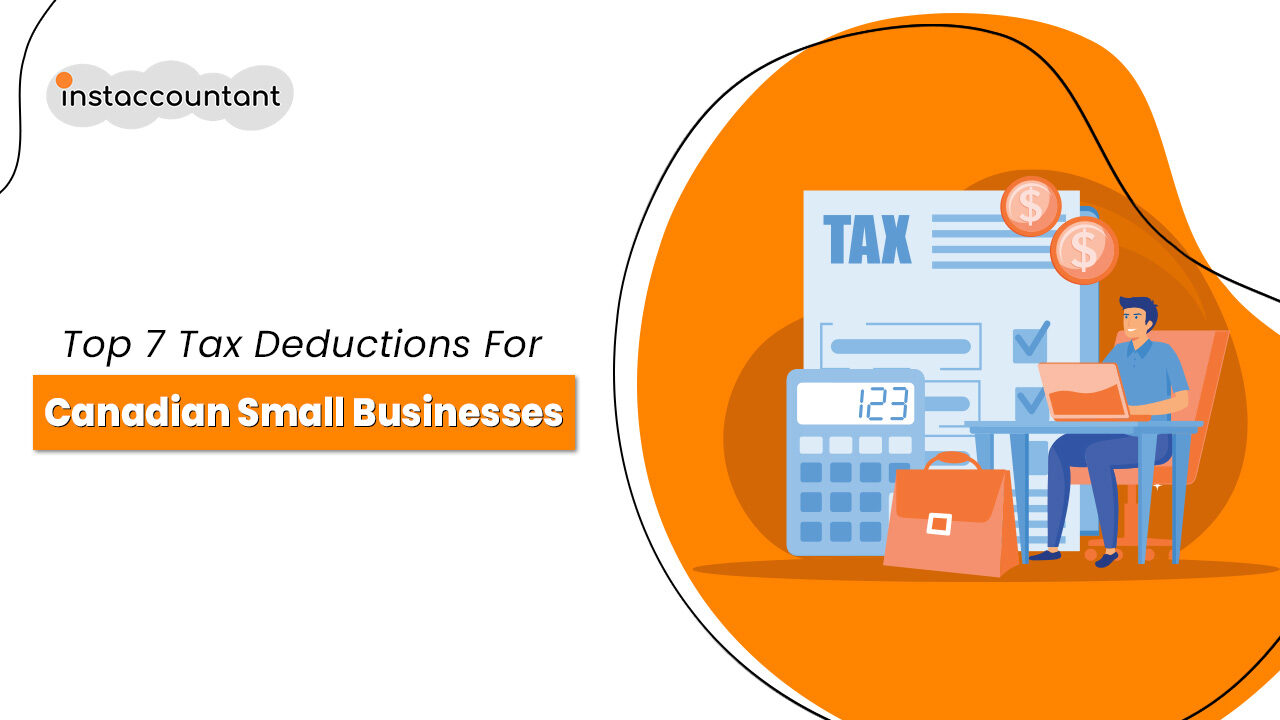Welcome to the savvy world of tax planning, where every penny saved is a penny earned, especially for independent contractor in Canada. As we navigate through the fiscal year of 2024, understanding the nuances of tax deductions is not just smart; it’s essential for maximizing your business’s financial health. Tax deductions are far more than mere figures on a balance sheet; they are essential tools that can significantly enhance your efficiency and growth. By strategically managing your expenses and knowing exactly what the Canada Revenue Agency allows you to deduct, you’re setting the stage for a more profitable and less taxing business experience.
In this blog, we’ll explore the top seven tax deductions available to independent contractors in Canada, focusing on how each one can help you retain more of your hard-earned revenue.
1. Home Office Expenses
For many independent contractors, working from home is a practical and cost-effective choice. If you operate your business from a home office, you may be eligible to claim a variety of home office expenses, provided you meet specific criteria.
Eligibility Criteria:
- Your home office must be your principal place of business.
- The space must be used regularly and exclusively to earn business income.
Deductible Home Office Expenses Include:
- Heating Costs: Portion of your heating bill related to the office space.
- Home Insurance: Percentage of your insurance premium that covers the office area.
- Electricity: Cost of electricity used in the home office.
- Property Taxes: A portion based on the size of your office.
- Mortgage Interest: Interest paid on your mortgage proportional to the office space.
- Capital Cost Allowance (CCA): Depreciation on office equipment and improvements.
How to Calculate Home Office Deduction:
To determine the deductible portion of these expenses, prorate based on the size of your home office relative to your total home space. For instance, if your office occupies 200 square feet in a 2,000-square-foot home, you can claim 10% of these costs.
2. Office Rent and Lease Expenses
If your business operates from a leased office space, you can deduct all associated costs. This includes:
- Monthly Rent: The full amount paid for leasing the office.
- Maintenance Costs: Expenses related to maintaining the office space.
For those who own their office property, you can claim mortgage interest as a deduction.
3. Meals and Entertainment
When entertaining clients or conducting business meetings over meals, you can claim 50% of the meal expenses. For example, if a business lunch costs $100, you can deduct $50. However, expenses related to golf outings or similar recreational activities are not deductible.
4. Interest and Bank Charges
Interest and bank fees related to business activities are fully deductible. This category includes:
- Business Loan Interest: Interest on loans taken for business purposes.
- Bank Fees: Charges for maintaining business bank accounts.
- Credit Card Processing Fees: Fees incurred from accepting credit card payments.
Accurate record-keeping is essential to substantiate these deductions.
5. Office Supplies and Equipment
Office supplies and equipment that are essential for running your business are deductible. This includes:
- Office Supplies: Items such as printers, paper, and stationery.
- Office Furniture: Desks, chairs, and other furniture necessary for your workspace.
These costs are vital for your business operations and contribute to reducing your taxable income.
6. Legal and Accounting Fees
Professional services related to legal and accounting matters are fully deductible. This category includes:
- Legal Fees: Costs for drafting contracts, handling disputes, or legal advice.
- Incorporation Costs: Fees associated with setting up a business entity.
- Annual Filing Fees: Costs for maintaining compliance and filing annual reports.
- Accounting Services: Fees for bookkeeping, tax preparation, and financial advice.
Even if you use tax software, that cost is also deductible.
7. Motor Vehicle Expenses
If you use your vehicle for business purposes, you can claim a portion of vehicle expenses proportional to business use. This includes:
- Fuel: Costs of gasoline or diesel for business trips.
- Insurance: Vehicle insurance costs related to business use.
- Repairs and Maintenance: Expenses for maintaining the vehicle.
- Leasing Costs: If the vehicle is leased, a portion of the lease payments.
Capital Cost Allowance (CCA):
If the vehicle is purchased, you can also claim capital cost allowance (CCA) on its purchase price, spreading the cost over several years.
Understanding Capital Cost Allowance (CCA)
In Canada, capital assets must be capitalized rather than expensed immediately. This means the cost is depreciated over several years. For instance, a $2,000 computer would be depreciated according to CRA guidelines rather than being fully deducted in the year of purchase. Generally, assets costing below $1,000 can be expensed immediately, while larger purchases must be capitalized.
Salaries and Wages
Salaries and wages paid to employees, including yourself, are deductible business expenses. This includes:
- Base Salary: Regular salary payments to employees.
- CPP Contributions: Employer portion of Canada Pension Plan contributions.
- EI Premiums: Employment Insurance premiums.
Note that dividends paid to shareholders are not deductible.
Conclusion
As you implement these deductions, keep detailed records and stay informed about any changes in tax regulations to maximize your benefits. Working with a knowledgeable tax professional can also help you navigate the complexities and make the most of these opportunities.
By taking advantage of these deductions, you’re not only managing your tax obligations as an independent contractor but also making strategic investments in your business’s growth and long-term success. Here’s to happy savings!




